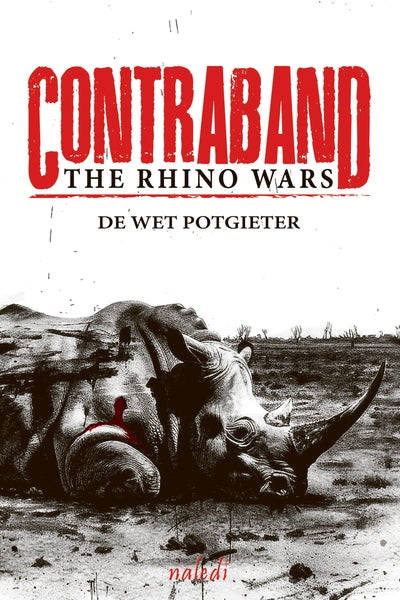
| Main centres: | 1-3 business days |
| Regional areas: | 3-4 business days |
| Remote areas: | 3-5 business days |
When a blonde who had walked out on her Botswana-based wildlife smuggling kingpin partner arrived at the offices of the Sunday Times in the last 1980's, the lid would be blown off a criminal network bent on killing off two of the world's most iconic species the elephant and the rhino. Using trucks to transport contraband across borders to curio shops fronting as legitimate operate operations, the syndicate operated with free abandon, until their nefarious activities were revealed through investigations by journalist De Wet Potgieter.
It was because of the information supplied by Brenda Voue that De Wet was inundated with so much information about the involvement of local and foreign criminal networks, senior military officials propping up the Jonas Savimbi's war in Angola, and senior National Party officials that he authored not only several more newspaper articles on the plight of rhino and elephant but also produced the first edition of Contraband in 1995. Since then, a plethora of information continues to come to light about the involvement of government officials, international spies, British undercover operatives, businesspeople, and criminal elements, which has prompted a retelling of the wildlife crime in more detail, and with enthralling new information in Contraband.
This is an exposure to the depths to which certain people would enjoy a piece of the pie. The commercial international rhino horn trade has been banned by the Convention on the International Trade in Endangered Species of Wild Fauna and Flora (CITES) for more than 45 years. In South Africa, the domestic trade in rhino horn has been legal since 2017 opening loopholes for criminal syndicates to "legally" purchase rhino horn, but still smuggling it out of the country for traditional uses in the Far East.
The involvement of criminal operations such as the Triads cannot be ignored, nor can the pressure pre- and post-apartheid on the South African police's highly successful Endangered Species Protection Unit under Colonel Piet Lategan, which resulted in its eventual demise. It's an inescapable fact that the onslaught on South Africa's rhino, and other wildlife within the Southern African region, will continue despite the commitment and tenacity of several individuals and non-government organisations.